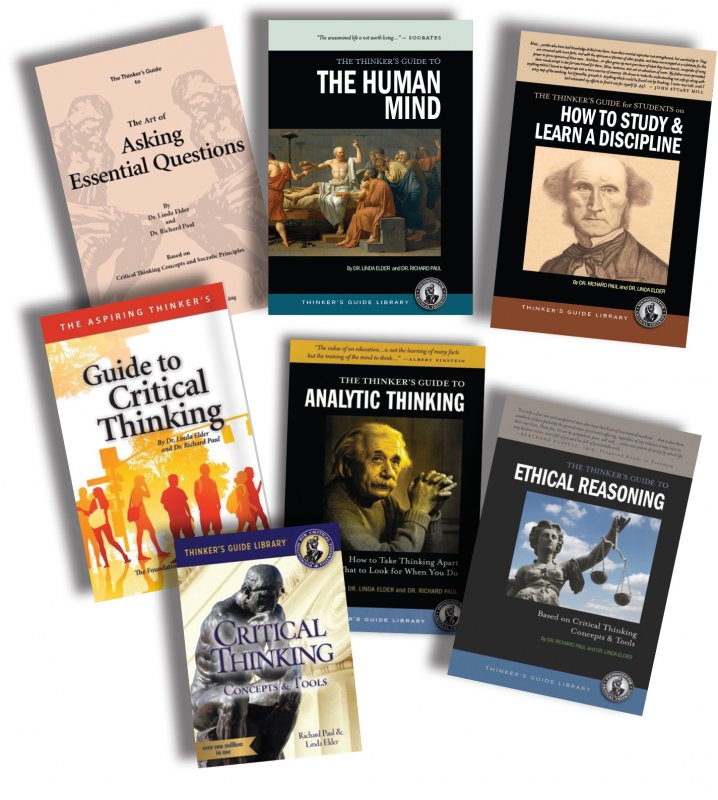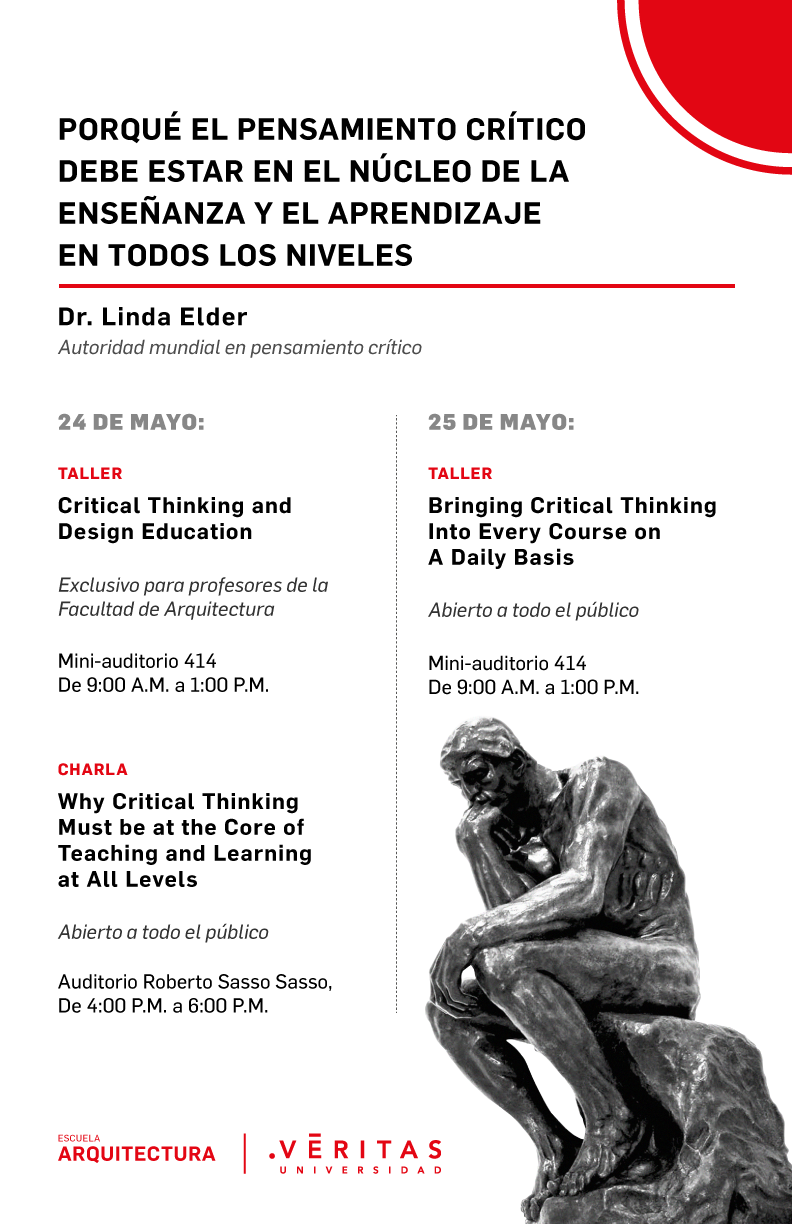| CT Glossary and Guide to Fallacies Promotion
| | |
| Free Public Lecture in Costa Rica
| | |
| | Connect with Other Conference Attendees Through Our Facebook Event Page! May 9, 2018 |
See our Facebook Event Page for the 38th Annual International Conference on Critical Thinking! Connect with other attendees, ask about sharing rooms or rides, and plan your evenings together (but don't miss Thursday's Evening Social!)
With surges in fake news, "alternative facts," and sophistry in circles of power and influence, the world needs educators, students, and leaders in government and business to master the intellectual tools which help guard against these pervasive assaults on knowledge and reason. We hope you will join us at the world's longest-running conference on critical thinking; see session descriptions here.
|
| | Free Copies of the Critical Thinking Glossary and Guide to Fallacies through May 16:
 The Core Set provides an overview of the foundational concepts and tools in a robust framework for critical thinking. The perfect starting place for beginners, and the perfect reference material for seasoned reasoners!
|
| Free Costa Rica Lecture by Dr. Linda Elder: Spanish-Language Flyer Released:
 Universidad VERITAS has released its Spanish-language flyer for Dr. Linda Elder's free lecture in San José, Costa Rica on May 24, 2018. See the full-resolution flyer.
The lecture, titled, 'Why Critical Thinking Must be at the Core of Teaching and Learning at All Levels,' will take place from 4:00 - 6:00 p.m at the Auditorio Roberto Sasso Sasso at Universidad VERITAS' Escuela Arquitectura.
|
| Censorship as Harm to Oneself and Humankind:
Often, those who endeavor to stop the expression of an idea assume they are only impairing the speaker. In his 1859 work, On Liberty, John Stuart Mill articulates the way in which censorship of ideas is in fact 'robbing the human race' as a whole:
If all mankind minus one were of one opinion, and only one person were of the contrary opinion, mankind would be no more justified in silencing that one person, than he, if he had the power, would be justified in silencing mankind...the peculiar evil of silencing the expression of an opinion is, that it is robbing the human race; posterity as well as the existing generation; those who dissent from the opinion, still more than those who hold it. If the opinion is right, they are deprived of the opportunity of exchanging error for truth; if wrong, they lose, what is almost as great a benefit, the clearer perception and livelier impression of truth, produced by its collision with error. (This excerpt can be found in our online article, 'Critical Societies: Thoughts from the Past.') |
| ' . . . in our world everybody thinks of changing humanity, and nobody thinks of changing himself.' Leo Tolstoy, 'Three Methods of Reform' (1900)
|
| |